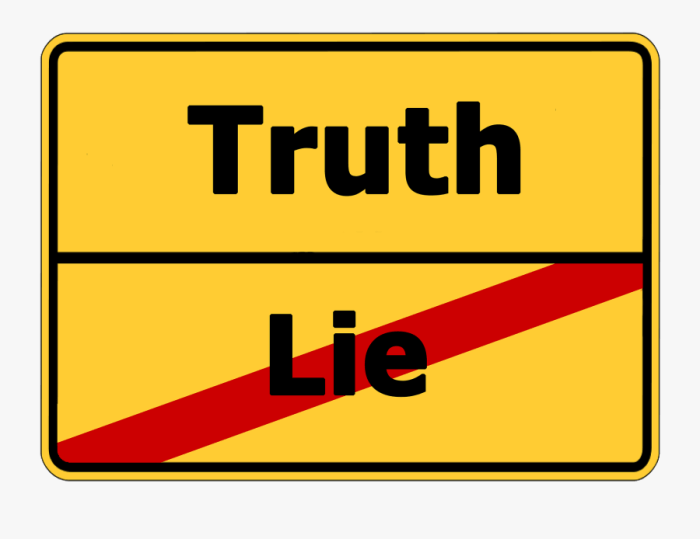Mentiras y alejandra decir no yo – Mentiras y Alejandra: Decir No y Explorar la Verdad es un viaje fascinante a través de los complejos laberintos de la verdad, la mentira y el poder de la negación. Este artículo explora el impacto de las mentiras en las relaciones, el papel de Alejandra en la difusión o el combate de las mentiras y las consecuencias de las mentiras en su vida y en la de quienes la rodean.
Además, analiza la importancia de decir “no” en los entornos personales y profesionales, los desafíos que enfrenta Alejandra al afirmar sus límites y rechazar las solicitudes, y proporciona estrategias para una comunicación efectiva y el establecimiento de límites en su situación.
Mentiras y Alejandra: Exploring the Truth: Mentiras Y Alejandra Decir No Yo

Lies, or “mentiras” in Spanish, are deliberate misrepresentations of the truth intended to deceive or mislead others. They can have a profound impact on relationships, eroding trust and damaging communication. Alejandra, a central character in the narrative, plays a pivotal role in either spreading or combating lies, shaping the dynamics and consequences that unfold within the story.
Alejandra’s Role in Lies
Alejandra’s involvement in lies can manifest in various ways. She may actively engage in spreading falsehoods, either intentionally or unknowingly. Alternatively, she may choose to remain silent in the face of lies, allowing them to persist and potentially cause harm.
Additionally, she may confront lies head-on, challenging their validity and seeking to expose the truth. The specific role Alejandra plays in relation to lies is a key factor in determining the narrative’s trajectory and the impact on her own life and the lives of those around her.
The Power of “No”

In both personal and professional settings, the ability to say “no” is a crucial skill that enables individuals to set boundaries, protect their well-being, and maintain a sense of control over their lives. In the context of “Mentiras y Alejandra,” Alejandra’s journey highlights the significance of asserting her boundaries and refusing requests that compromise her values or well-being.
Alejandra faces numerous challenges in asserting her boundaries. These include cultural norms that discourage women from expressing disagreement, fear of disappointing others, and a desire to maintain harmony in her relationships. Additionally, her profession as a social worker often requires her to prioritize the needs of others over her own.
Strategies for Effective Communication and Boundary-Setting
To effectively communicate her boundaries and refuse requests, Alejandra can employ the following strategies:
- Be clear and direct:When saying “no,” Alejandra should be assertive and unambiguous in her communication. She should avoid using vague or apologetic language that could be misinterpreted as an invitation to negotiate.
- Provide a brief explanation (optional):In some situations, Alejandra may choose to provide a brief explanation for her refusal. However, she should be mindful not to over-explain or justify herself, as this can weaken her position.
- Use “I” statements:Using “I” statements can help Alejandra take ownership of her feelings and needs. For example, she could say, “I am not comfortable doing that” or “I need to prioritize my own well-being right now.”
- Practice saying “no”:The more Alejandra practices saying “no,” the more confident she will become in asserting her boundaries. She can role-play with a trusted friend or family member to gain experience in different situations.
- Seek support:If Alejandra finds it difficult to say “no” on her own, she can seek support from a therapist or counselor. They can provide her with guidance and strategies for setting boundaries and communicating her needs.
Alejandra’s Inner Conflict

Alejandra grapples with a profound inner conflict as she navigates the treacherous waters of truth and deception. Her heart yearns for honesty, yet a sense of loyalty and protectiveness compels her to conceal the truth.
The ethical implications of lying weigh heavily on Alejandra’s conscience. She understands that deception can erode trust, damage relationships, and ultimately undermine her own integrity. Moreover, the act of lying can trigger a cycle of self-sabotage, leading to feelings of guilt, shame, and a loss of self-respect.
Balancing Honesty and Compassion
In navigating this ethical quandary, Alejandra must carefully consider the potential consequences of both honesty and deception. While honesty is generally considered the most virtuous path, there may be instances where compassion and empathy warrant a more nuanced approach.
- Honesty as a Principle:Alejandra recognizes the importance of honesty as a fundamental principle of ethical conduct. She believes that truthfulness fosters trust, builds strong relationships, and promotes a sense of personal integrity.
- Compassion and Empathy:However, Alejandra also understands the power of compassion and empathy. She believes that sometimes, withholding the truth can be justified if it protects others from harm or emotional distress.
- Contextual Decision-Making:Ultimately, Alejandra’s decision-making process must be guided by the specific context and circumstances she faces. She must carefully weigh the potential benefits and risks of both honesty and deception, striving to find a balance that aligns with her ethical values.
The Impact of Lies on Trust

Trust is the cornerstone of any healthy relationship, whether personal or professional. It allows individuals to feel secure, supported, and confident in their interactions with others. Breaking trust, however, can have devastating consequences, eroding the foundation of the relationship and damaging self-esteem.
In the case of Alejandra, her lies have significantly affected the trust of those around her. Her friends and family have come to question her honesty and reliability, leading to a breakdown in communication and intimacy. Additionally, her own self-esteem has been compromised as she grapples with the guilt and shame associated with her deception.
Rebuilding Trust
Rebuilding trust after lies have been told is a challenging but not impossible task. It requires honesty, transparency, and a willingness to take responsibility for one’s actions. The following strategies can help:
- Acknowledge the lies:The first step is to acknowledge the lies that have been told and take full responsibility for them. Avoid making excuses or blaming others.
- Explain the reasons:If possible, provide an explanation for why the lies were told. This does not excuse the behavior, but it can help others understand the underlying motivations.
- Apologize sincerely:A heartfelt apology can go a long way in mending broken trust. Express remorse for the pain caused and demonstrate a genuine desire to make things right.
- Change behavior:The most important step in rebuilding trust is to change the behavior that led to the lies in the first place. This may involve setting boundaries, practicing self-discipline, or seeking professional help.
- Give time:Rebuilding trust takes time and effort. It is important to be patient and consistent in one’s efforts, and to avoid rushing the process.
Communication and Openness

Communication plays a pivotal role in resolving conflicts and fostering honesty. Open and vulnerable conversations are essential for building trust and strengthening relationships. Alejandra’s journey to healing requires effective communication to address the lies and deception that have damaged her relationships.
The Importance of Open Conversations
Open and honest conversations are crucial for building trust and resolving conflicts. They allow individuals to express their thoughts, feelings, and perspectives without fear of judgment or criticism. In Alejandra’s case, open conversations with her partner and therapist can help her to process the lies and rebuild trust.
Strategies for Improving Communication
Improving communication skills involves developing active listening, empathy, and assertiveness. Active listening involves paying attention to what others are saying, both verbally and nonverbally. Empathy allows individuals to understand and share the feelings of others. Assertiveness enables individuals to express their thoughts and feelings in a respectful and direct manner.
- Practice Active Listening:Pay attention to what others are saying, both verbally and nonverbally. Show that you are engaged by nodding, making eye contact, and asking clarifying questions.
- Develop Empathy:Try to understand and share the feelings of others. Put yourself in their shoes and consider their perspective.
- Be Assertive:Express your thoughts and feelings in a respectful and direct manner. Avoid being aggressive or passive-aggressive.
- Set Boundaries:Establish clear boundaries around what you are and are not willing to tolerate. Communicate these boundaries to others.
- Seek Professional Help:If communication difficulties persist, consider seeking professional help from a therapist or counselor.
Fostering Transparency
Transparency involves being open and honest about one’s thoughts, feelings, and actions. It is essential for building trust and maintaining healthy relationships. Alejandra can foster transparency by sharing her experiences, admitting her mistakes, and being accountable for her actions.
By embracing open communication and fostering transparency, Alejandra can create a foundation for healing and rebuilding trust in her relationships.
Self-Reflection and Growth

Self-reflection and self-awareness are crucial for personal growth as they enable individuals to gain insight into their thoughts, emotions, and behaviors. This process involves critically examining one’s own actions, motivations, and beliefs to identify areas for improvement and development.
In the case of Alejandra, acknowledging her own lies and taking responsibility for her actions poses significant challenges. The cognitive dissonance between her self-perception and her actual behavior can create feelings of guilt, shame, and discomfort. Additionally, the fear of judgment or rejection from others may further hinder her ability to confront her own shortcomings.
Strategies for Self-Reflection, Forgiveness, and Personal Transformation, Mentiras y alejandra decir no yo
- Journaling: Regularly writing down thoughts, feelings, and experiences can facilitate self-reflection and identify patterns of behavior.
- Meditation: Practicing mindfulness and meditation can help individuals become more aware of their inner thoughts and emotions, promoting self-awareness.
- Seeking feedback: Asking for constructive criticism from trusted individuals can provide valuable insights into one’s strengths and weaknesses.
- Forgiveness: Acknowledging one’s own mistakes and forgiving oneself for past actions is essential for personal growth and emotional well-being.
- Setting goals: Establishing clear and achievable goals can provide motivation and direction for personal transformation.
- Seeking professional help: If self-reflection proves challenging, seeking support from a therapist or counselor can provide guidance and support.
Top FAQs
¿Qué es el concepto de “mentiras” y cómo impactan las relaciones?
Las mentiras son declaraciones falsas o engañosas que pueden dañar la confianza, erosionar las relaciones y crear barreras para la comunicación abierta.
¿Cómo se relaciona Alejandra con la difusión o el combate de las mentiras?
El papel de Alejandra en la difusión o el combate de las mentiras es complejo y depende del contexto. Puede ser una fuente de verdad y honestidad, o puede verse involucrada en la propagación de información falsa.
¿Cuáles son las consecuencias de las mentiras en la vida de Alejandra y de quienes la rodean?
Las mentiras pueden tener consecuencias graves en la vida de Alejandra y de quienes la rodean, incluyendo la pérdida de confianza, el daño a las relaciones y el aislamiento social.